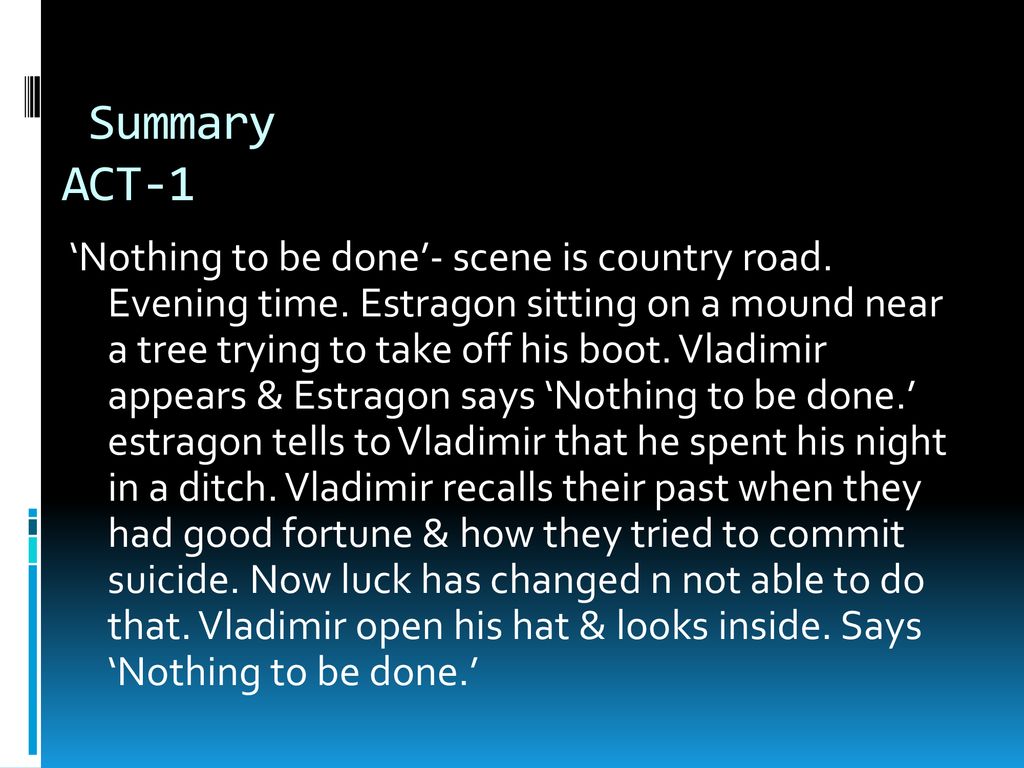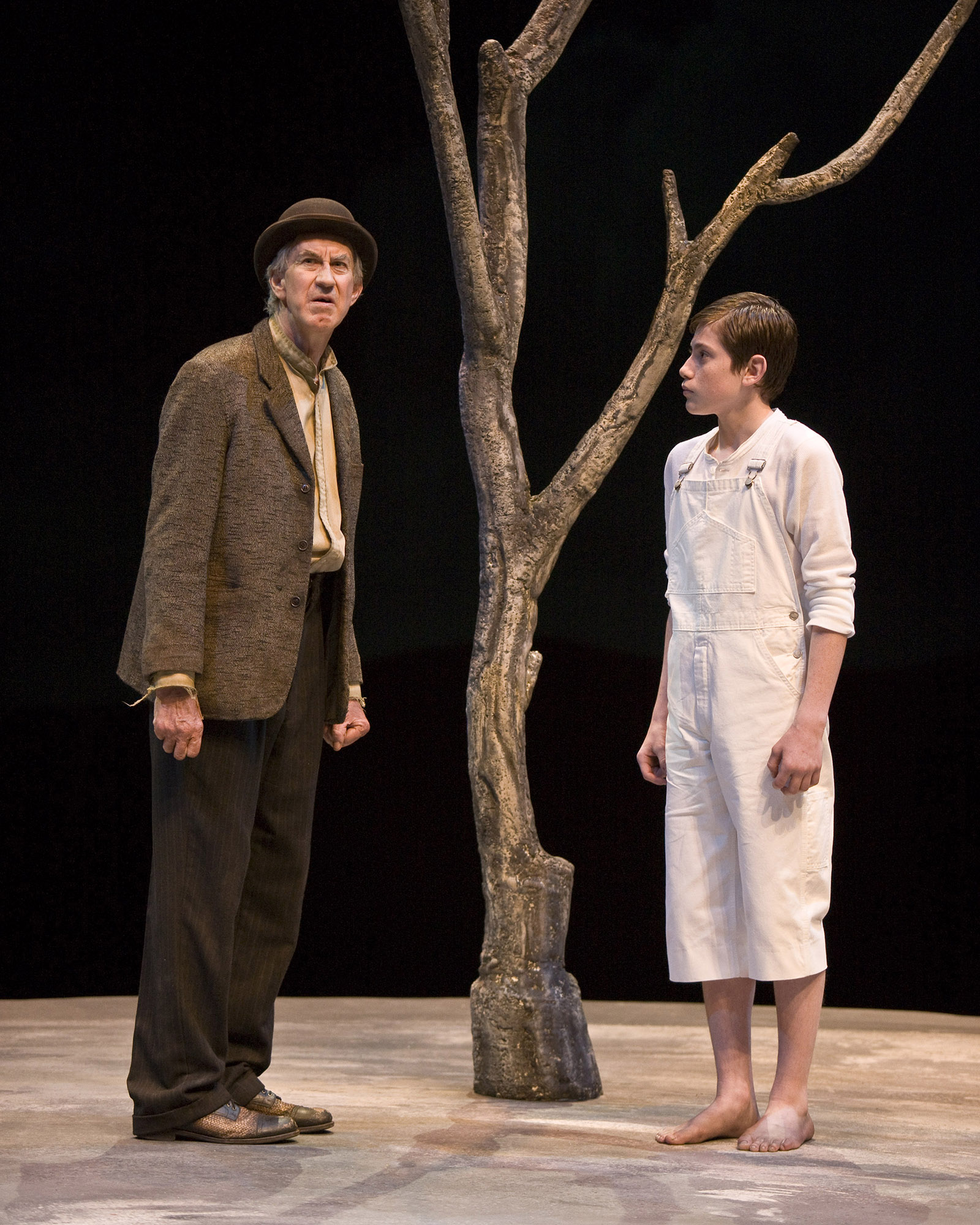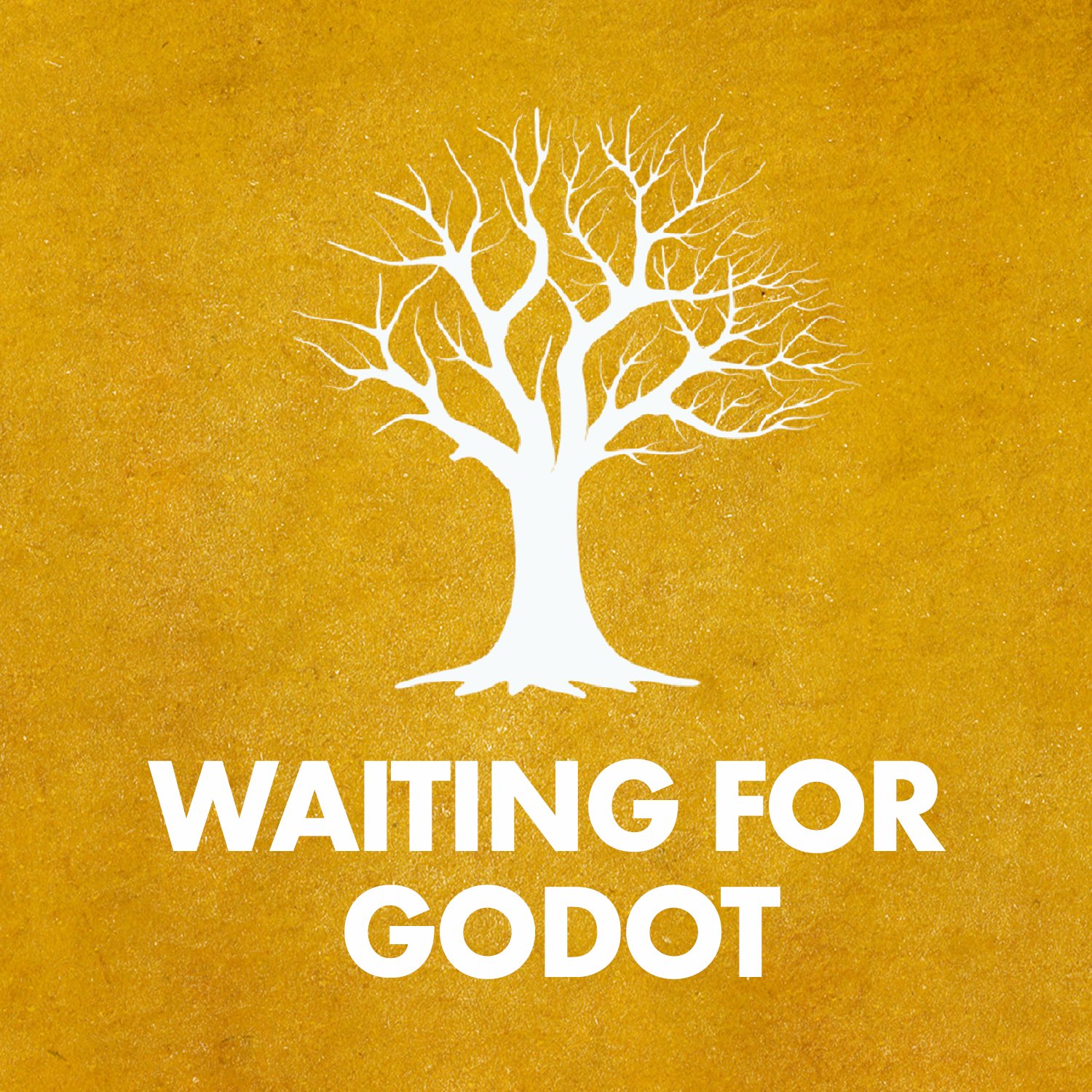"Waiting for Godot" is a play by Samuel Beckett that was first performed in 1953. The play follows the story of two men, Vladimir and Estragon, who are waiting for a man named Godot to arrive. The play is set on a country road and takes place over the course of two days.
The play opens with Vladimir and Estragon, who are waiting by a tree for Godot to arrive. They discuss their anticipation of his arrival and their memories of him, although they are not entirely sure who he is or what he looks like. They pass the time by bickering, telling jokes, and trying to entertain each other.
As they wait, two other characters, Pozzo and Lucky, appear on the road. Pozzo is a wealthy man who is accompanied by Lucky, a servant who is carrying all of Pozzo's belongings. Pozzo is rude and dismissive towards Vladimir and Estragon, and Lucky is silent and subservient.
The next day, Vladimir and Estragon are still waiting for Godot. They are joined by Pozzo and Lucky again, but this time Pozzo is blind and Lucky is mute. The men continue to wait for Godot, but he does not arrive.
Throughout the play, the characters struggle with feelings of despair, boredom, and meaninglessness as they wait for Godot. They question the point of their existence and the value of their actions.
The play ends with Vladimir and Estragon still waiting for Godot, and it is unclear if he will ever arrive. The play suggests that the characters' waiting for Godot is a metaphor for the human condition, and the play encourages the audience to consider their own sense of purpose and meaning in life.
"Waiting for Godot" is a thought-provoking and deeply philosophical play that challenges its audience to consider the nature of existence and the human experience. It is a classic work of modern theatre that continues to be performed and studied around the world.









